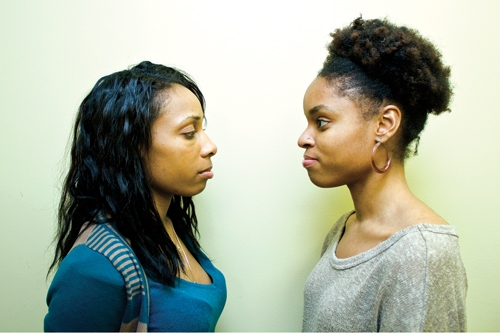How I learned to love my roots
Jennifer-Ann Dargacz
Contributor

I wear an afro, and I’m proud.
To some people, this might seem like an insignificant statement. But let me explain why this is important, and how I came to realize just how important this is.
My hair was natural until the age of 16, before my senior year in high school when I discovered the dynamics and intricacies of relationships. I wanted to be seen as a woman, because of course, at 16 years old, I was a mature individual. The real issue was that I really wanted to blend in with my fellow “relaxed” classmates.
Hence, after begging my mother for weeks, she finally acquiesced to my demands and took me to the hair salon to get my first relaxer. I must admit, when I came out of the salon, I felt so beautiful and grown. I got compliments from
everyone. Apparently, a lot of people rejoiced in my coming of age.
Every six weeks, religiously, I would find my way back to retouch those evil roots. I eventually became so used to retouching my hair that I could not even conceive of letting anyone see me without freshly relaxed hair.
When I moved from Montréal to Toronto, I knew no one, much less a professional hair stylist. Unfortunately, after some tragic salon experiences where it would have been better if I had flushed my hard-earned money down the toilet, I decided to fix my hair myself. Not a great idea. Some women are wonderful at maintaining healthy hair themselves. That was not the case for me. My hair started breaking off, my edges thinning out, and I looked like a disaster. I decided to let my hair grow out naturally. And I did so without a thought of making any political statement. My reasons were purely aesthetic.
I did not realize that whether I liked it or not I was making a statement. People suddenly became very interested in my hair and had a lot to say about it. I started getting negative comments from family members and strangers alike, all asking me when I was “getting my hair done.” For me, my hair was done; it was washed, combed, and styled.
After facing so much hostility, I started questioning my journey and my reasons for going natural. At times, it was very hard to explain to people why I “big-chopped” and to convince them that I was not insane. What puzzles me the most was the hostility that some people had and still have towards my hair. What makes some people so angry? I mean, it’s just hair, right? Wrong.
Unfortunately, we live in a society that tells us Black women, from a young age, that our hair is not the right type of curls, not straight enough, not long enough, not good enough, which means that we are not good enough. The anger that people display towards natural hair comes from the rejection we face when we are young, and the possibility of us not being accepted for who we really are when we become adults.
We are told lies about our natural hair: that it is unruly, unkempt, and unprofessional, among other things. We are bombarded with ads that sell us the myth of achieving manageable hair only through straightening products. We are constantly pitted against each other by separating those who have “good hair” versus those who don’t.
India Arie’s song “I Am Not My Hair” speaks on how we should not be judged by our hairstyles and textures, but by the person we are and our character. This is nice on paper, but the reality is that a woman’s hair has been used for centuries as a barometer for beauty. Therefore, when society tells us that we are not beautiful with our natural hair, we find countless ways to change who we are. In the process, we fill the pockets of multinationals that thrive on our low self-esteem.
As for myself, I have never felt more beautiful with my own kinky, and dare I say it, nappy hair. I do not have to adhere to the Eurocentric standard of beauty, because it is not who I am. My confidence has increased tremendously, and in the process, I discovered who I was and what I stood for. And this is why I proudly wear an afro.


